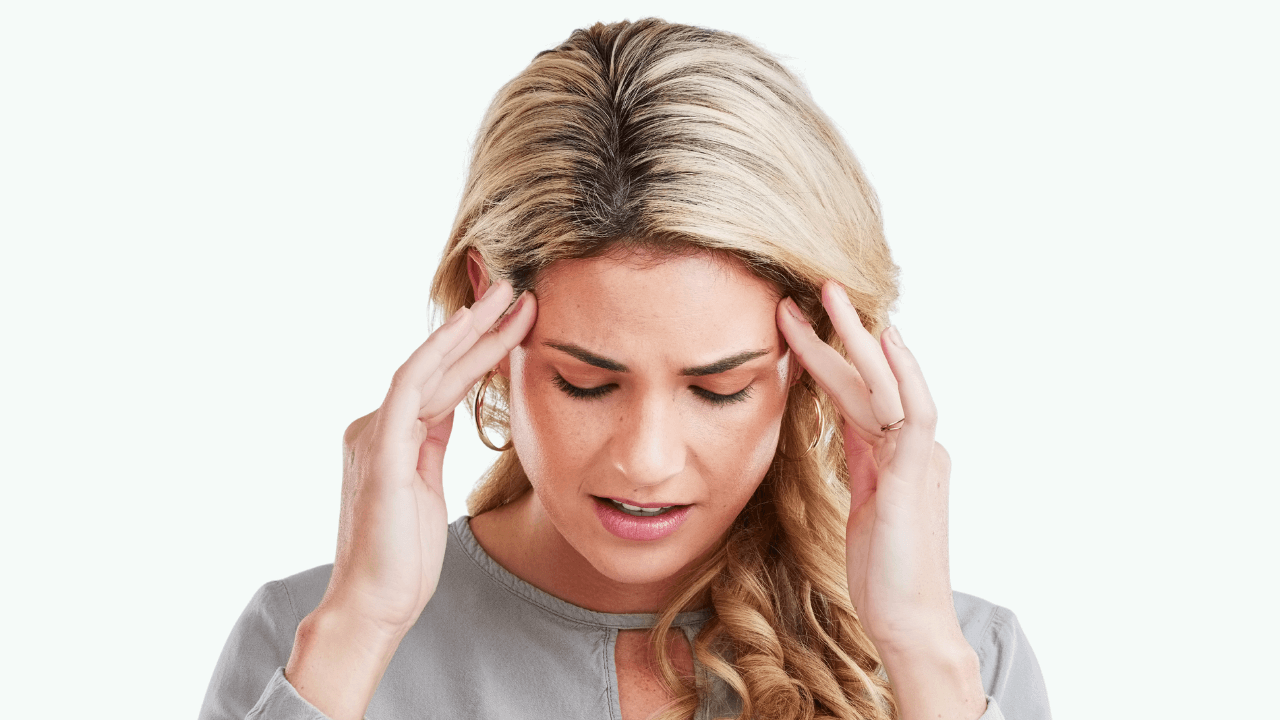

Elevated anxiety levels may induce hormonal imbalances and negatively affect cognitive and physical functioning. Does sex reduce stress and anxiety?
When you engage in sexual stimulation, your body releases pleasure hormones such as oxytocin, dopamine, and endorphins. Such hormonal release may promote relaxation, pain relief, anxiety reduction, and trust (between partners).
Besides, there are other health benefits of engaging in sexual activities. These may include mild calorie burning, improved cardiovascular health, and enhanced mood and sleep quality.
Learning about the intricate relationship between sex and anxiety reduction can highlight the impact of sexual activity on hormones. It could help you know ways to improve sexual stress relief and whether masturbation could reduce anxiety or worsen it.
Anxiety is an emotional state marked by feelings of fear or unease triggered by specific situations or objects. Its triggers are often accompanied by physical symptoms like sweating, trembling, and muscle tension.
Anxiety is a common human experience, with mild anxiety being a normal stress response. However, when these feelings become persistent or overwhelming, they may indicate an anxiety disorder.
According to the DSM-V, various types of anxiety disorders may comprise panic disorder, social anxiety disorder, generalized anxiety disorder, and separation anxiety disorder.
When you are anxious, your body releases hormones like norepinephrine and cortisol. These hormones raise awareness and readiness for action, activating the autonomic nervous system to regulate physiological functions like heart rate and breathing.
The heightened alertness could make you more sensitive to stressors and amplify your perception of stressful events.

According to a research study, sex could be a suitable cardiovascular exercise for younger women and men. Although not regarded as an exercise, sex may be considered a mild-intensity exercise as it raises heart rate and burns some calories.
Sexual activity is associated with better brain function, including improved memory and problem-solving abilities. It could also enhance intimacy with a partner, fostering emotional and physical closeness, trust, and connection.
Better sleep quality can be encouraged through sex, as it induces feelings of relaxation and the release of hormones like oxytocin and prolactin. Such effects may promote calmness, improve immunity, and boost energy throughout the day.
Regular sexual activity has shown a positive correlation with improved cardiovascular health. It might mitigate the risk of cardiovascular diseases and positively affect heart health.
Dopamine, known as the “reward” or “pleasure” hormone, is released in response to pleasurable sensations, such as during sex. Increased dopamine levels may lead to a sense of happiness and contentment, counteracting negative feelings like anxiety and stress.
The dopamine release may enhance motivation levels, making you more driven to engage in activities that bring you pleasure and satisfaction. The increased motivation might help combat feelings of lethargy often associated with anxiety.
Dopamine may regulate attention and concentration. High dopamine levels may improve focus and cognitive function, allowing you to better manage stress/anxiety by staying present and engaged at the moment.
Oxytocin (also termed as the cuddle hormone) is released upon physical touch, such as during sex, pregnancy, or breastfeeding.
The physical proximity during sex and orgasm might raise oxytocin levels. The hormone could help ease pain, reduce anxiety, and improve overall mood. It might enhance feelings of trust, intimacy, and connection with the partner.
The release of oxytocin during sexual encounters could influence emotional responses and behavioral patterns that contribute to a sense of security and comfort. Such effects may help reduce anxiety levels by encouraging relaxation.
The release of endorphins may be stimulated during sexual activity and physical touch. It could promote relaxation, pleasure, and pain reduction.
Endorphins act as natural mood lifters, enhancing emotional well-being and providing a sense of euphoria. They create a positive feedback loop that may alleviate stress and anxiety by reducing pain perception and improving pleasure.
This neurotransmitter helps dampen the effects of cortisol, the primary stress hormone. As endorphins flood the brain and body during sexual encounters, they induce relaxation and mental clarity. Such effects may counteract feelings of anxiety and tension.
During sexual activity, prolactin levels may rise, particularly in women. In females, the prolactin hormone partakes in essential bodily functions, including reproductive function, lactation, and immunity.
Research indicates that prolactin might influence sleep regulation, with sedative effects that promote sleepiness. High prolactin levels may induce quality sleep and reduce signs of sleep disorders like insomnia.
Getting adequate and restorative sleep is essential for those looking to manage anxiety, as it could improve cognitive well-being, energy levels, and mental clarity.
Sexual activity could help decrease serum cortisol levels, the primary stress hormone. Cortisol reduction through sexual activity might contribute to a more relaxed and less anxious state.
Reduced cortisol levels post-sexual activity could improve mood and mental health. You might experience a positive shift in your emotional state, with an increased sense of happiness and contentment.
Masturbation may temporarily soothe anxiety symptoms by releasing endorphins and oxytocin. It could also help alleviate performance anxiety or a lack of desire by reducing pressure related to sexual expectations.
While masturbation offers stress relief, improves mood, and enhances sleep, it may not be a definitive cure for anxiety. It should complement a comprehensive treatment plan for anxiety management.
| Benefits of Masturbation for Anxiety Relief | Description | Impact |
|---|---|---|
| Stress Relief | Masturbation can release endorphins and oxytocin, promoting relaxation | Reduces stress levels and induces calmness |
| Improved Mood | The release of feel-good hormones during masturbation may enhance mood | Boosts overall emotional well-being |
| Hormonal Balance | Masturbation could help regulate hormone levels in the body | Contributes to a balanced emotional state |
| Sleep Quality | Masturbation may aid in better sleep due to the release of relaxing hormones | Improves sleep patterns and overall restfulness |
| Sexual Function | Regular masturbation can help maintain sexual health and function | Enhances sexual experiences and satisfaction |
Engaging in sexual activities might be a powerful tool for stress relief. To get more sexual stress relief, you should prioritize intimacy and communication with your partner. Talk about boundaries, preferences, and desires with your partner, which could foster emotional well-being.
Exploring different sexual activities, like massage or sensual touch, may promote relaxation and emotional connection.
Creating a comfortable and safe environment for sexual encounters may enhance relaxation and pleasure, contributing to stress reduction.
Integrating mindfulness techniques during sexual activities may help you stay present and fully engaged in the moment.
Establishing a structured routine for sexual activities might help reap the long-term benefits of stress relief and improved mental health.
Prioritizing self-care, including adequate rest, nutrition, and physical activity, could also complement the stress-relieving effects of sex.
Also See: Yawning And Anxiety: Should You Ever Ignore Yawning Due To Anxiety?
A lack of sexual activity might contribute to feelings of anxiousness and stress in those who desire or value intimacy within their relationships.
The absence of sex itself may not directly cause anxiety. However, the inability to engage in sexual activity when desired may lead to emotional distress.
Common factors that may trigger anxiety related to sex include generalized sexual anxiety and performance anxiety.
Sexual performance anxiety is characterized by fear or apprehension regarding your sexual abilities, impacting the enjoyment of sexual encounters. It may manifest in various ways, like difficulty achieving arousal, premature ejaculation, or a decreased interest in sexual activities.
Conversely, sexual anxiety encompasses concerns related to sexual interactions. These may include fears of rejection, self-consciousness during intimacy, or worries about the consequences of sexual engagement (like unwanted pregnancies or STIs).
Stress may significantly impact your sexual desire and performance, potentially inducing difficulties in intimacy and satisfaction.
Elevated stress levels might dampen sexual desire, making you less inclined towards engaging in sexual activities. The mental burden of stress can overshadow the interest in intimacy, potentially decreasing libido.
Unchecked stress may contribute to physical issues like erectile dysfunction and pain during sex. The tension and anxiety induced by stress may impact sexual performance and function.
Daily stressors like family obligations, work responsibilities, and other life demands may leave you feeling drained. The fatigue could make it challenging to prioritize sex and engage fully in intimate moments with a partner.
If you face concerns like arousal difficulties, persistent worries related to sex, or intrusive thoughts, it may be time to consider professional support.
Individual therapy, marriage counseling, or sex therapy could provide the necessary tools to address these issues and improve your well-being.
To further guide you in understanding when to seek professional help, the table below outlines signs indicative of the need for assistance:
| Signs Requiring Professional Help | Description | Impact |
|---|---|---|
| Difficulty with arousal or achieving orgasm | Persistent challenges in physical intimacy | Hinders sexual satisfaction |
| Persistent worries or fears related to sex | Ongoing anxiety surrounding sexual activities | Impacts mental well-being |
| Avoidance of sexual activity or intimate relationships | Actively avoiding or withdrawing from intimacy | Affects relationship quality |
| Intrusive thoughts related to sexual activity | Unwanted, distressing thoughts during or about sex | Disrupts mental peace |
Engaging in consensual sexual activities with your partner may promote relaxation, lower anxiety/stress levels, and improve emotional bonding. Knowing specifically why and how sex may relieve anxiety could give you even more reasons to have sex.
Persistent or elevated anxiety/stress may decrease sexual desire, impact sexual performance, and cause difficulties during intimate moments. Recognizing these stressors and implementing suitable coping mechanisms may reduce anxiety and encourage sexual wellness.
Making time for sex, communicating openly with your partner, and getting psychotherapy (talk or sex therapy) could help alleviate sex-related anxiety.
Tyler Read earned an undergraduate academic degree from Sonoma State University, California and is a certified personal trainer (CPT) with NASM (National Academy of Sports Medicine). With over 16 years of experience, Tyler has trained clients both online and in-person.
He is passionate about helping others turn their love for fitness into a career. Tyler has worked with many local and commercial gyms before establishing his successful private personal training business, which he continues to operate.
